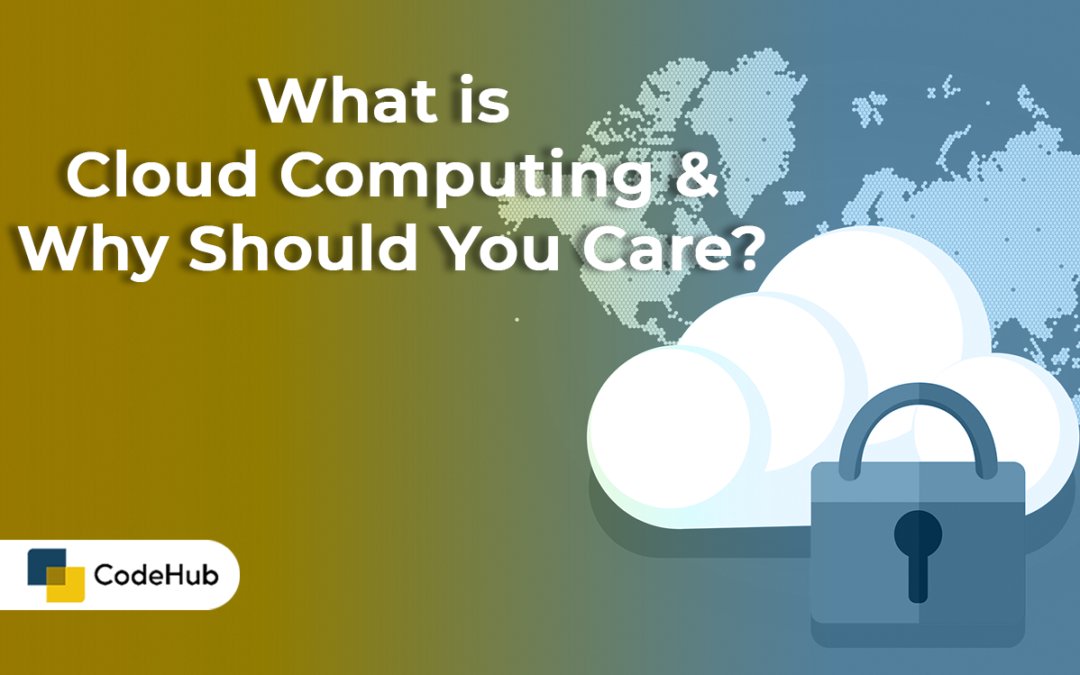Cloud computing is the delivery of computing services over the internet, such as servers, storage, databases, networking, software, analytics, and intelligence. Instead of buying and maintaining your own physical servers and data centers, you can access these services on demand from a cloud service provider. You only pay for what you use, and you can scale up or down as your needs change.
Cloud computing offers many advantages over traditional IT infrastructure, such as:
- Cost: Cloud computing eliminates the upfront cost of buying and setting up hardware and software, as well as the ongoing cost of power, cooling, and maintenance. You can also save money by avoiding over-provisioning or under-utilizing your resources.
- Speed: Cloud computing allows you to provision and deploy computing resources in minutes, with just a few clicks. You can also access your data and applications from anywhere, anytime, with any device that has an internet connection.
- Scalability: Cloud computing enables you to easily adjust your computing resources according to your demand. You can handle peak loads or unexpected spikes without worrying about capacity or performance issues.
- Reliability: Cloud computing ensures that your data and applications are always available and secure. Cloud service providers have multiple redundant servers and data centers across the globe, which means that if one fails, another one can take over. They also have backup and disaster recovery systems in place to protect your data from loss or corruption.
- Innovation: Cloud computing allows you to access the latest technologies and tools without having to invest in them yourself. You can leverage the expertise and experience of cloud service providers to improve your business processes and outcomes.
How Does Cloud Computing Work?
Cloud computing works by using a network of remote servers hosted on the internet to store, manage, and process data and applications. These servers are owned and operated by cloud service providers, who offer various types of cloud computing services to their customers.
There are three main types of cloud computing services:
- Infrastructure as a Service (IaaS): This is the most basic type of cloud service, which provides you with raw computing resources, such as servers, storage, networks, and operating systems. You have full control over these resources and can configure them as you wish.
- Platform as a Service (PaaS): This type of cloud service provides you with a ready-to-use environment for developing, testing, deploying, and managing your applications. You don’t have to worry about the underlying infrastructure or software updates.
- Software as a Service (SaaS): This type of cloud service provides you with access to software applications that run on the cloud. You don’t have to install or maintain anything on your device. You simply use the software through a web browser or an app.
There are also different ways of deploying cloud computing services:
- Public cloud: This is the most common type of cloud deployment, where you share the same infrastructure and services with other customers of the same cloud service provider. You benefit from economies of scale and lower costs, but you have less control and customization options.
- Private cloud: This type of cloud deployment is dedicated to a single organization or customer. You have more control and security over your data and applications, but you also have higher costs and responsibilities for managing the infrastructure.
- Hybrid cloud: This type of cloud deployment combines public and private clouds to achieve the best of both worlds. You can use public clouds for non-sensitive or scalable workloads, and private clouds for sensitive or mission-critical workloads.
Why Should You Care About Cloud Computing?
Cloud computing is not just a buzzword or a trend. It is a powerful and transformative technology that can help you achieve your personal and professional goals. Whether you are an individual user or a business owner, here are some reasons why you should care about cloud computing:
- Cloud computing can improve your productivity: By using cloud-based applications and services, you can access your data and work from anywhere, anytime, with any device. You can also collaborate with others more easily and efficiently.
- Cloud computing can enhance your creativity: By using cloud-based platforms and tools, you can unleash your imagination and create amazing things. You can also learn new skills and explore new possibilities.
- Cloud computing can increase your security: By using cloud-based security solutions, you can protect your data and devices from cyberattacks and threats. You can also backup and restore your data in case of any disaster.
- Cloud computing can reduce your environmental impact: By using cloud-based resources, you can reduce your energy consumption and carbon footprint. You can also support green initiatives and practices by choosing cloud service providers that use renewable energy sources.
Cloud computing is the future of computing, and it is here to stay. If you want to stay ahead of the curve and take advantage of the benefits of cloud computing, you need to start using it today.

